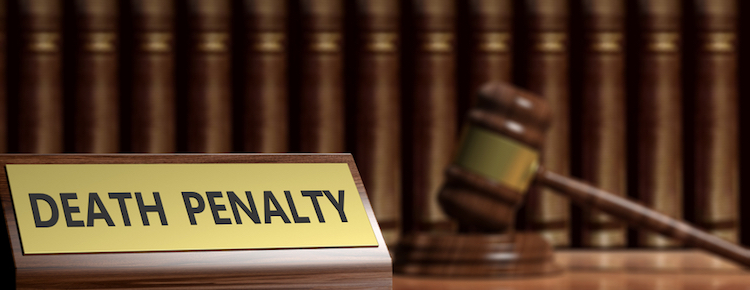'This is not justice': Sotomayor slams final federal executions before Biden's inauguration

Image from Shutterstock.com.
Dustin John Higgs was executed early Saturday, the 13th inmate to be put to death since the federal government resumed executions after a 17-year hiatus.
The U.S. Supreme Court allowed the execution to proceed in a ruling Friday. Three liberal justices would have stayed the execution; two of them wrote separate dissents, report SCOTUSblog, CNN and the New York Times.
Justice Stephen G. Breyer cited several unresolved issues surrounding federal death sentences.
“What are courts to do when faced with legal questions of this kind?” he wrote. “Are they simply to ignore them? Or are they, as in this case, to ‘hurry up, hurry up’? That is no solution.”
Breyer has previously said death sentences are arbitrary, and the Supreme Court should review the constitutionality of the death penalty.
Justice Sonia Sotomayor decried what she saw as an “unprecedented rush” to execution.
“Over the past six months, this court has repeatedly sidestepped its usual deliberative processes, often at the government’s request, allowing it to push forward with an unprecedented, breakneck timetable of executions,” Sotomayor wrote.
“This is not justice,” she said.
Higgs was executed for his role in the murders of three women, according to a separate New York Times story. Higgs was the final federal inmate scheduled for execution before the inauguration of President-elect Joe Biden and Vice President-elect Kamala Harris.
The issue before the court Friday was whether Higgs could be executed in Indiana under the state’s procedures, according to SCOTUSblog. Higgs was convicted in Maryland, which eliminated the death penalty in 2013. The previous day, the Supreme Court had denied a request to stay the executions of Higgs and another inmate who argued that lung damage from COVID-19 infections posed a risk of suffering.
The ABA had asked Acting U.S. Attorney General Jeffrey Rosen to delay the execution of Higgs and two other inmates, citing a substantial risk of COVID-19 transmission at the federal prison housing the federal execution chamber and in the surrounding community.
Higgs’ case came to the court as a petition for certiorari before judgment, an unusual procedure in which justices intervene in a case before a federal appeals court has ruled, according to SCOTUSblog. When the court does accept such a cert petition, it usually holds oral arguments, according to SCOTUSblog.
See also:
ABAJournal.com: “Afternoon Briefs: Execution carried out despite COVID-19 claim; 9 charged in Flint water crisis”
ABAJournal.com: “Afternoon Briefs: 3 federal executions delayed; BigLaw partner resigns after sex harassment claim”
ABAJournal.com: “Afternoon Briefs: 2 death-row inmates test positive for COVID-19; US attorney in Missouri will resign”



